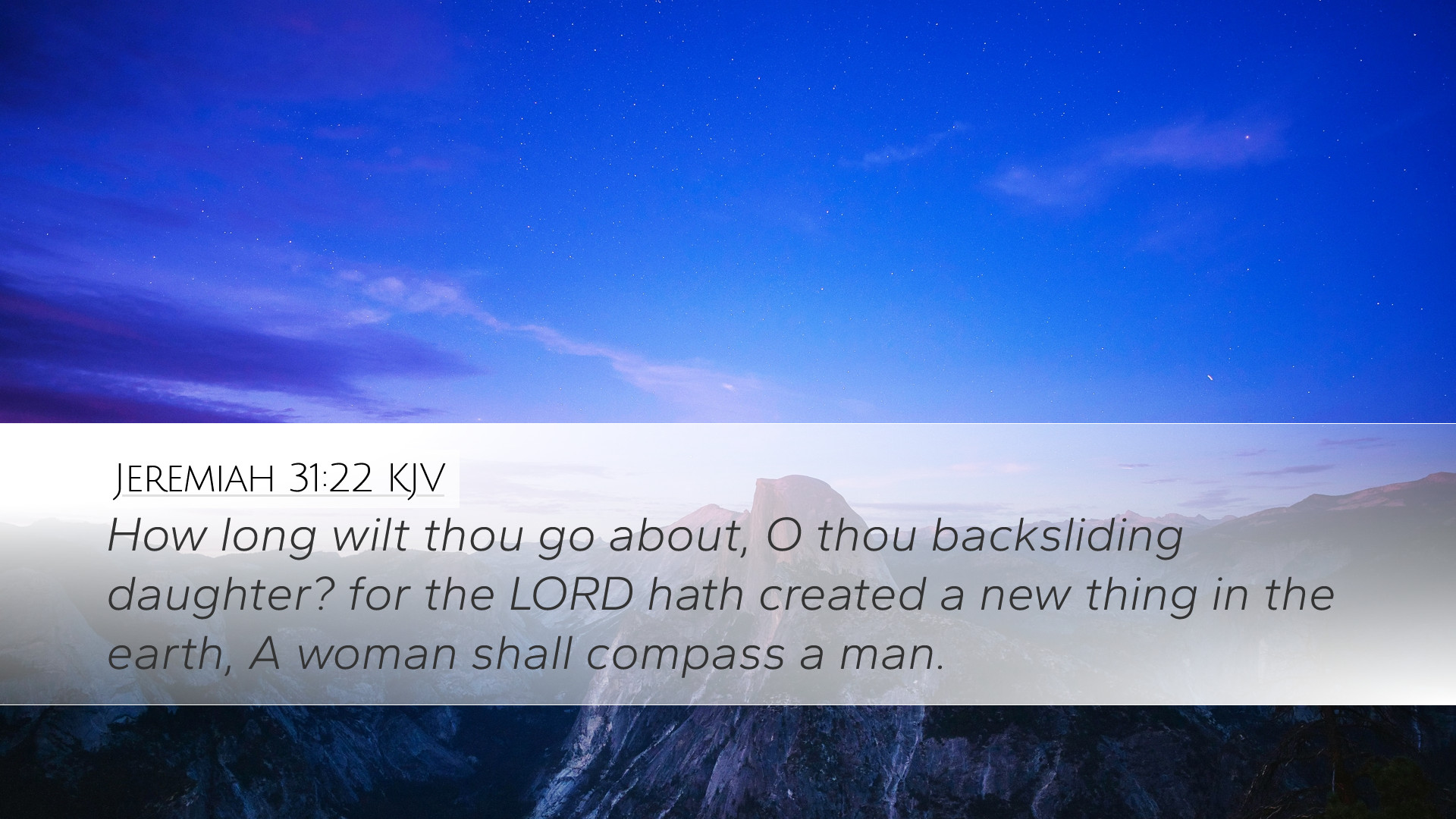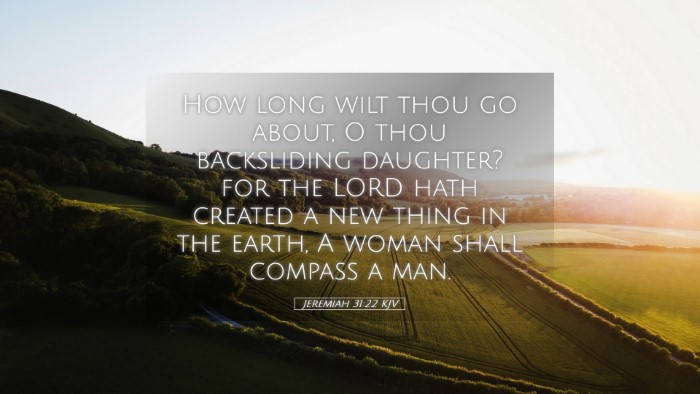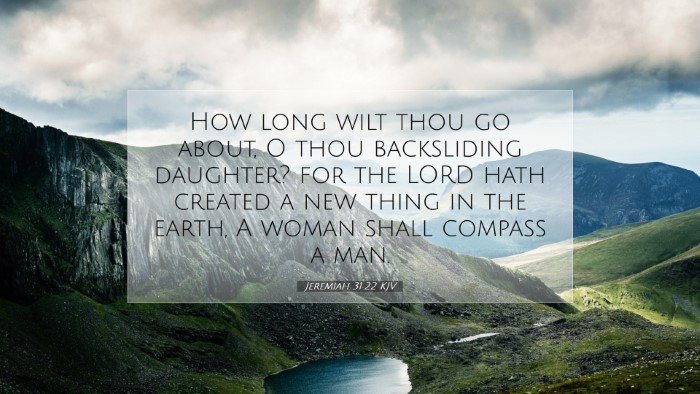Commentary on Jeremiah 31:22
Jeremiah 31:22 states: "How long will you wander, O unfaithful daughter? For the LORD has created a new thing on the earth—A woman shall encompass a man."
Context and Background
The Book of Jeremiah is set against the backdrop of the late 7th and early 6th centuries B.C., during a tumultuous period in Judah's history. The prophet Jeremiah, often referred to as the “weeping prophet,” delivered messages of judgment, but also of hope and restoration. Chapter 31 is particularly significant as it outlines God's promise of a new covenant and the future restoration of His people.
Textual Analysis
This verse calls attention to the unfaithfulness of Israel, often personified as a wayward daughter. The question posed, "How long will you wander," reflects God's patience and the longing for repentance among His people.
The latter part of the verse, which mentions a "woman shall encompass a man," is rich with interpretation. This phrase suggests a shift in societal roles and expectations, indicating profound transformation that God will bring about in Israel's relationship with Him.
Insights from Commentators
Matthew Henry's Commentary
Matthew Henry emphasizes the unfaithfulness of Israel, illustrating how they have strayed from their covenant with God. He observes that God's patience is on display in His question, indicating His desire for the people to return to Him. Henry notes that the reference to a “new thing” denotes the surprising and transformative work that God would accomplish through His faithfulness, despite Israel's repeated infidelity.
Albert Barnes' Commentary
Albert Barnes provides a detailed examination of the phrase, “A woman shall encompass a man.” He interprets this as a profound illustration of protection and care, suggesting a reversal of traditional gender roles. Barnes posits that the prophecy includes a promise of new birth and hope—a divine initiative that overturns existing paradigms. He argues that this symbolizes not just restoration for Israel, but a new way of relating to God, emphasizing the nurturing aspect of divine love.
Adam Clarke's Commentary
Adam Clarke points out that this verse embodies both judgment and hope. He links the wandering of the people to their spiritual defection and urges a return to faithfulness. Clarke emphasizes the part about a woman encompassing a man as a sign of new beginnings and strong relationships in the community. He suggests this could indicate a coming time of peace and stability in contrast to the chaos brought about by Israel's rebellion.
Theological Implications
The implications of Jeremiah 31:22 extend beyond its immediate context:
- Grace and Restoration: The verse illustrates God's grace toward His unfaithful people, affirming that despite their transgressions, He remains committed to restoring them.
- Redefinition of Relationships: The mention of a woman encompassing a man articulates a profound redefinition of relationships, suggesting that God's new covenant will enhance community ties and roles.
- Future Hope: It points toward the Messianic hope within the prophetic literature, where God transforms even the roles within society to elevate and restore His people.
Conclusion
Jeremiah 31:22 serves as a poignant reminder of God’s patience, the hope for restoration, and the transformative power of a new covenant. For pastors, students, theologians, and scholars, this verse invites deep theological reflection on God's faithfulness and love, as well as an encouragement to seek reconciliation and restoration in our journey of faith.


